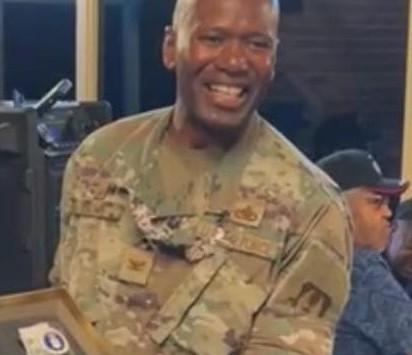
With the current hold in the Senate on confirming general and flag officers, as many as 650 critical leadership positions might be vacant by year’s end, said the deputy Pentagon press secretary during a July 10, 2023, briefing.
The hold has been put in place by Sen. Tommy Tuberville, R-Ala.
Military positions which should be filled with confirmed leaders, Singh said, might instead need to be filled by men and women who are doing the job part time, while continuing to fill another role they’ve already been appointed to.
Right now, Singh said, as many as 265 general and flag officer nominations have been delayed in the Senate, affecting the smooth transition of leadership.
This morning, for instance, Marine Corps Gen. David H. Berger relinquished his position as the 38th Commandant of the Marine Corps.
Taking his place is Marine Corps Gen. Eric M. Smith, who will serve in an acting capacity, until confirmed, while he continues to serve in his current role as the assistant commandant.
The only other time the Marine Corps operated with an acting commandant was in 1818, more than 100 years ago, when Marine Corps Maj. Archibald Henderson served as the acting commandant for just over five months. In later years, Henderson was confirmed as commandant.
During the relinquishment of office ceremony at the Marine Barracks in Washington, D.C., today, Secretary of Defense Lloyd J. Austin III used the opportunity to highlight the importance of smooth leadership transitions within the U.S. military.
“As the secretary said in his speech today, smooth and timely transitions of confirmed leadership are critical to the defense of the United States and to the full strength of the most powerful fighting force in history,” Singh said. “Stable and orderly leadership transitions are also vital to maintaining our unmatched network of alliances and partners; they are crucial for our military readiness.”
Continued holds on confirmations, Singh said, poses a risk that the department will experience knowledge and expertise gaps in critical and difficult-to-fill positions. She said this will impact the readiness of the force.
Tomorrow, Air Force Gen. Charles Q. Brown Jr. goes before the Senate for a hearing regarding his nomination to be the next chairman of the Joint Chiefs of Staff. Brown currently serves as the chief of staff of the Air Force. Later this week, Army Gen. Randy A. George will also appear before the Senate regarding his nomination to be the next chief of staff of the Army. George currently serves as the vice chief of staff of the Army.
Continued delay in confirming leadership positions in the department, Singh said, means some officers may be asked to delay retirements so they can stay in their current positions. Other leaders may be asked to take on a role with more responsibility, and in an acting capacity, but without the commensurate promotion and pay that goes with that role.
“This is going to have a huge impact across the force,” Singh said. “And … it’s not just our general and flag officers that are that are being impacted … it is their families as well.”
Singh offered as an example two students who had disenrolled from their current school expecting to move with their military parent to a new assignment. However, due to delays in confirmation, they have now found that they can’t enroll in their new school because they are not sure when they will be able to relocate. In a similar example, a schoolteacher ended her contract with her current employer, expecting to move to a new location, but now that’s been put on hold due to delays in Senate confirmations.
“This is having an incredible impact not just [on] our general and flag officers, but [on] our families,” Singh said.










